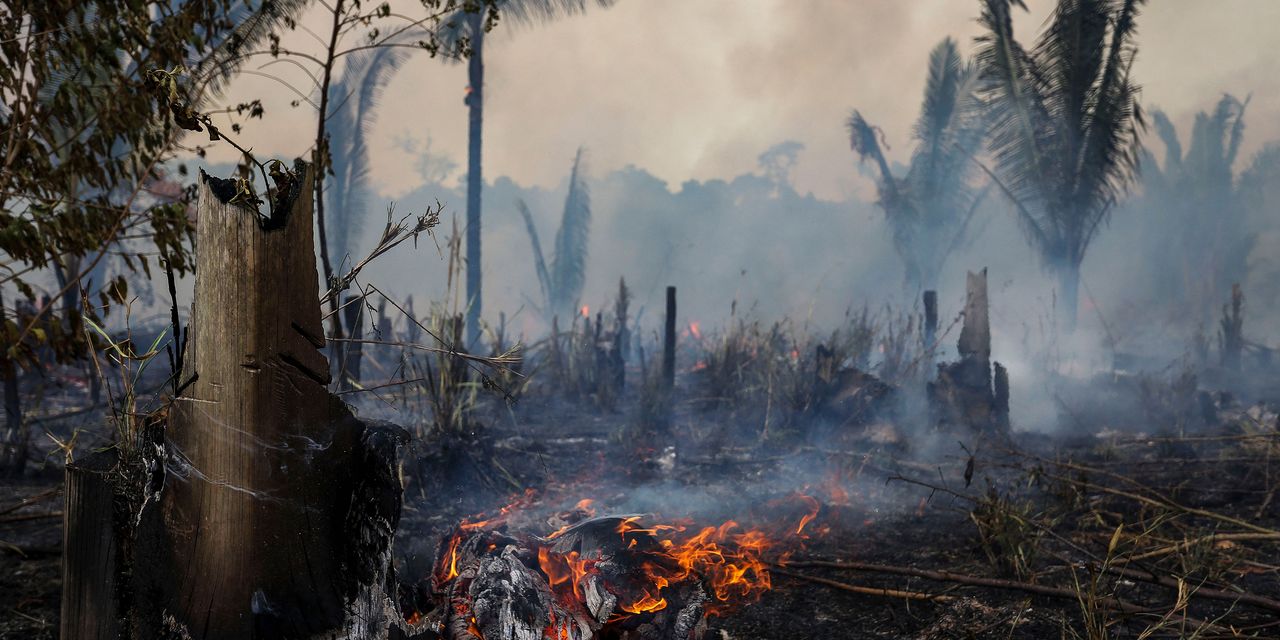There’s one good reason the rest of the world should care about Brazil, aside from it being the giant of Latin America with 215 million citizens. That would be the Amazon rainforest, whose role as a carbon sink makes a critical check on global warming.
Brazilian President Luiz Inácio Lula da Silva cut Amazon deforestation by 80% during previous terms, 2004-12. Jair Bolsonaro reversed this progress with a vengeance from 2018-22. Four-fifths of the (mostly illegally) cleared land is used for cattle ranching, says Erika Berenguer, a Brazilian researcher at Oxford’s Ecosystems Lab.
The returning Lula, as the 77-year-old leader is known, lately unveiled a new plan for stopping Amazon deforestation by 2030. That could pay off by unsticking a stalled trade agreement between the European Union and Mercosur, a five-nation South American bloc dominated by Brazil. Resistance within Brazil looks much stronger than in the 2000s, though.
Environmentalists give high marks to Lula’s blueprint, which leans heavily on improved satellite monitoring and updated digital land registries. “The plan is very robust, with instruments that didn’t exist in 2004” says Carlos Rittl, former head of Brazil’s Climate Observatory.
Lula also faces opposition that did not exist then. The nine states of the Amazon region voted solidly for Bolsonaro, whom Lula beat by less than two percentage points last October. Their 28 million residents favor development and jobs over conservation, says Creomar de Souza, founder of Dharma Political Risk and Strategy in Brasília. “The right has successfully painted environmentalism as the enemy of the people,” he says.
A bigger threat may come from the national Congress, where Lula’s leftist PT party is heavily outnumbered. “This is the most conservative Congress we have ever had,” Berenguer says.
Deputies passed two laws on the eve of Lula’s Amazon announcement, removing the environment ministry’s oversight of land registration, and raising the bar for carving out protected indigenous territories.
Lula has weapons to fight back, aside from a formidable federal police force. The most potent is a rich subsidized credit stream flowing to farmers through state banks. His earlier administrations cut off this largess from areas with uncontrolled deforestation. This one could too. “The federal government has lots of instruments to convince states to be more positive on the Amazon package,” de Souza comments.
Lula could still use backup from abroad. European Commission President Ursula von der Leyen offered just that on a visit to Brazil this week. With Brasilia’s Amazon policy back on track, the EU-Mercosur deal could be wrapped up this year, she predicted.
That would boost Lula’s political capital, not least among the agricultural interests who oppose him in the Amazon but would benefit most from much lower EU tariffs.
Von der Leyen’s word is hardly law, however, for the 27 EU member states who have to ratify any trade pact. France and Austria are leading the foot-draggers on a Mercosur accord, ostensibly on environmental grounds. Their domestic beef industries may not be coincidental, says Eoin Drea, senior researcher at the Wilfried Martens Centre for European Studies. “There’s a lot of rhetoric on the Amazon, but also big doses of protectionism,” he says.
Lula flies to Paris on June 22, with a good shot at nudging French President Emmanuel Macron toward Yes on EU-Mercosur, Drea thinks. Politics on both sides of the Atlantic still leave the campaign to save the Amazon all too fragile, like the great forest itself.
Read the full article here


